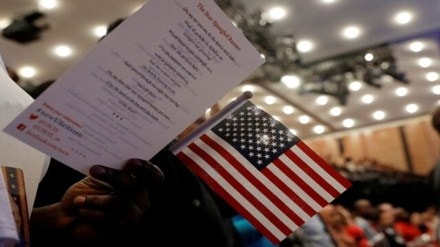The US government continues its widespread immigration crackdown this week with calls for stringent adherence to the “public charge” policy for visa applicants. A State Department cable recently directed US embassies around the world to adopt new screening rules — denying entry to candidates with certain medical conditions. The Donald Trump-led administration has announced multiple new fees (including a $250 ‘Visa Integrity Fee’ introduced in early October) over the past year.
According to reports, the Trump administration may now reject foreigners applying to live in the US for having “certain medical conditions”. The cable went out to US posts across the globe on Wednesday. The lengthy list includes cardiovascular diseases, respiratory diseases, cancers, diabetes, metabolic diseases, neurological diseases, and mental health conditions — with an official cable noting that treatment could “require hundreds of thousands of dollars’ worth of care”.
“Self-sufficiency has been a longstanding principle of U.S. immigration policy and the public charge ground of inadmissibility has been a part of our immigration law for more than 100 years,” Fox News quoted the memo as saying.
The guidance also urged consular officers to deny visas for those deemed likely to rely on public benefits and factor in past use of government aid. The US Department of Citizenship and Immigration Services has been asked to consider factors such as age, health, family status, assets, resources, and financial status, and education and skill of the applicant.
New rule or existing policy?
The ‘public charge’ provision is part of longstanding immigration rules that exclude people deemed most likely to rely on government aid. It is not a new rule, but had been enforced loosely during the previous Joe Biden era. The Trump government has now opted for a more stringent interpretation.
“The public charge ground of inadmissibility has been a part of US immigration law for more than 100 years. An alien who is likely at any time to become a public charge is inadmissible and ineligible for a visa, admission to the United States, or for adjustment of status to that of lawful permanent resident,” an earlier notice reminds.
What can make a foreigner ineligible?
A September policy memo from the US Department of Homeland Security admitted that there was no “bright-line” test for immigration officers to determine a public charge inadmissibility. Evaluation relies on the “totality of the alien’s circumstances” and the personal opinion of the consular officer.
